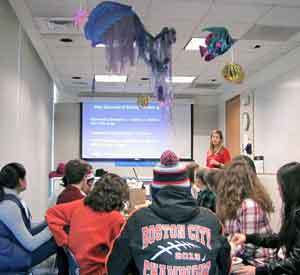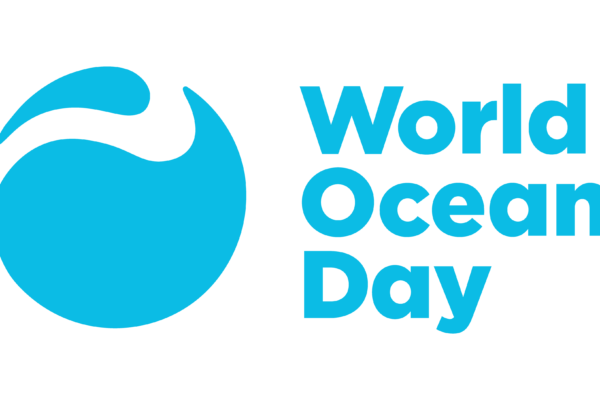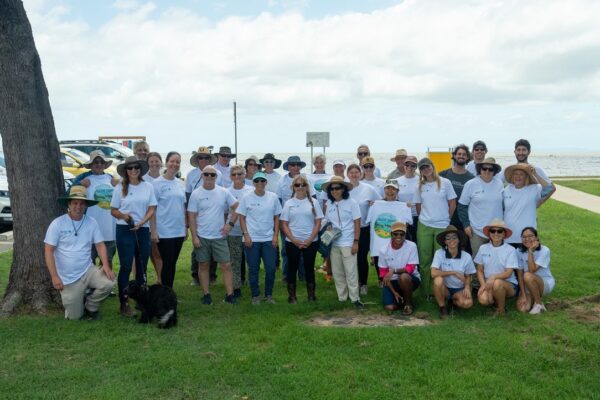Time: Saturday, September 19, 2:00-3:00 PM
The projects completed by The New England Aquarium, North Carolina Aquariums, and Oregon Coast Aquarium offered a mix of clever and innovative ideas, with some clear successes, and, of course, “lessons learned,” all with an emphasis on improving the ongoing efforts of zoos and aquariums to inspire visitors to take actions that advance environmental conservation. Here are five highlights!
Just ask! Additional evidence that our audiences expect, trust and appreciate our suggestions as to how they can help solve the problems facing our ocean
Windy Arey-Kent, who led the grant effort for the North Carolina Aquariums, noted, “We were able to ascertain that our visitors expect and appreciate it when we suggest ways for them to help” and could cite as example the results from their 1,100 visitor surveys, which revealed a whopping 92% agreement with the statement that “learning ways people like me can help conserve the ocean and its animals makes this aquarium a better place to visit.” Yet even though the overwhelming majority of their visitors and staff were strongly supportive, Windy added that they had to close their project prematurely when one influential activist, a conservative blogger, complained that they were messaging around climate change. Visitors engaged at the New England Aquarium, as well as those reached by the Oregon Coast Aquarium also were overwhelmingly positive about an action-oriented approach.
New support for a focus on the actions steps, and keeping it simple
At the Oregon Coast Aquarium, for example, they found that a direct call to action was, as project lead Teresa Mealy put it, “very impactful when engaging a teen audience.” And in keeping with the findings from the opinion research, Mealy and her teen team found that “too much science and issue information (up front) tended to be overwhelming, bogging down the presentation and taking the (audience’s) focus away from action.” The North Carolina Aquariums had a similar experience, as their visitors were keen to support green energy, but confused, and in many cases put off by attempts to explain the way in which the renewable energy credits actually worked – the guests wanted something simple that they could do then and there, with little to suggest that they would follow up and take action later (The question of impact after a visit, btw, that the Philadelphia Zoo is now exploring through their Innovative Solutions Grant+).
Our animals are indeed inspirational, and our institutions can be inspirational too!
Prior research has found that guests are inspired by the animals, and interested in actions that are connected back to helping the animals. But in a somewhat surprising finding, the North Carolina Aquariums found that passive displays that asked visitors to support clean energy by highlighting the Aquarium’s own commitment to the issue were nearly as effective – measured in terms of generating purchases of renewable energy credits – as their interpretation the same ask was connected back to its importance for the animals. With this in mind, Arey-Kent advised, “Fully investigate and be prepared to showcase your facilities’ sustainability efforts, as visitors really committed to participating when they saw that the facility was also committed to the cause.”
Rethink how we treat and train our teen interpreters
The New England Aquarium, as well as the Oregon Coast Aquarium, had experimental efforts that involved training, and, for lack of a better word, ‘deploying,’ teen interpreters. And both institutions had experiences that caused them to rethink their approach to working with their teens. Among their lessons learned, Heather Deschenes, project lead at the New England Aquarium, noted upon reflection that with teens who were already committed to the mission, “didn’t need in-depth training on climate science but rather time to build their confidence in speaking about climate basics – building their own social identity was more important (to their success) than learning the scientific information.” This advice was being applied at Oregon Coast Aquarium, where they focused on teaching their teens less about the science and more about communications, and, in an additional twist, gave the teens a lot of leeway in terms of designing the outreach campaign, with Mealy concluding that doing so, “can be risky (and intimidating) but is well worth it (as the) teens feel not only empowered, but take ownership of the project and are highly invested in its success.” And don’t underestimate the impact those engaged teen interpreters can have, as Deschenes added that their data, “suggest that interacting with the teens could indeed help expand a visitor’s willingness to act,” as when in an exit survey visitors were asked about their willingness to wash clothes in cold water or complete a home energy audit, those who had interacted with one of the teen interpreters reported a notably higher willingness to do so.
Recognizing it can be difficult and time consuming to coordinate with community efforts
Another important lesson that emerged from the experience of the New England Aquarium was one related to the challenges in coordinating with a community-wide effort, an experience that has been echoed by some of our 2015 grantees. Deschenes explained that their potential partnership with their city’s climate change initiative, “seemed perfect, as it was not only a community-wide, action-oriented effort, but one that came with a suite of tools to help measure audience engagement.” But the city’s efforts, she explained, were slow to take off, and, “by the fall of 2014, we knew we needed to change course, and we decided to put greater emphasis on having the teens present directly to aquarium visitors.”
Again, these are just a few of the highlights. For more on these specific experiences, and to share some of your own, please come see us in Salt Lake City!
With funding from the National Oceanic and Atmospheric Administration (NOAA), The Ocean Project developed Innovative Solutions Grants+ Program as a way to invest in innovators in the aquarium and zoo community, those willing to take chances and put the findings of public opinion research to the test. Click here for a summary of that research. The program provides grants of up to $30,000 that also come with pro bono strategic communications coaching and technical expertise to catalyze peer-to-peer sharing and learning.
The program has awarded two rounds of grants, and recently issued a request for new proposals: https://theoceanproject.org/request-for-proposals



